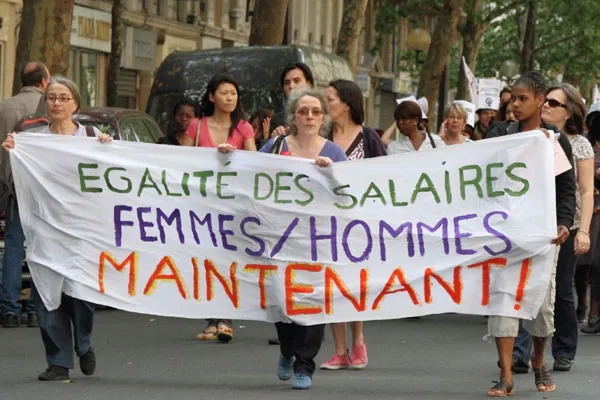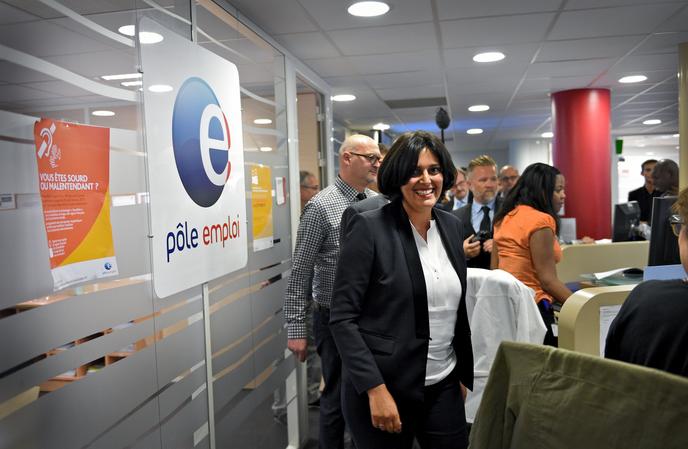 ’s first position in government was as Minister of Women’s Rights, in Francois Hollande’s administration. She became only the second Minister of Women’s Rights ever in France. The first, Yvette Roudy, served under President Mitterrand in the 1980s. Najat Vallaud Belkacem became the first woman Minister of National Education, her current position. We met her in her office to discuss what has to be defended and improved in the realm of gender equality and women’s rights in this period of electoral uncertainty.
’s first position in government was as Minister of Women’s Rights, in Francois Hollande’s administration. She became only the second Minister of Women’s Rights ever in France. The first, Yvette Roudy, served under President Mitterrand in the 1980s. Najat Vallaud Belkacem became the first woman Minister of National Education, her current position. We met her in her office to discuss what has to be defended and improved in the realm of gender equality and women’s rights in this period of electoral uncertainty.
As Minister of Women’s Rights and Gender Equality, her actions were marked by her commitment to collective work with women’s groups and associations, prodding legislators into enacting laws for the furtherance of women’s rights and gender equality. Under her administration, legislation against sexual harassment, in favor of additional protection for women victims of violence, and to make abortion and contraception completely free was passed. Protection for abortion centers has been reinforced. She asserted that “abortion is a right in itself and not something dependent on conditions.” She also worked for legislation to reinforce the notion of education of gender equality starting in “maternelle” (pre-kindergarten, a public school in France). She accomplished much despite a meager budget. The politics of austerity also hindered access to public services such as abortion centers. In the deleterious political climate with the rise of the extreme right, she also faced racist slurs. Nonetheless, she secured important headways for women.
Sincere and relentless political engagement became her way of action for gender equality and women’s rights. Her message for us is that, to secure women’s rights and gender equality, the State must spend time and energy to change people’s minds. Here’s our interview:

Najat Vallaud Belkacem
(Photo Credit 1: Mounir Belhidaoui/RespectMag) (Photo Credit 2: Phototèque Rouge/Marc Paris/ RespectMag)






